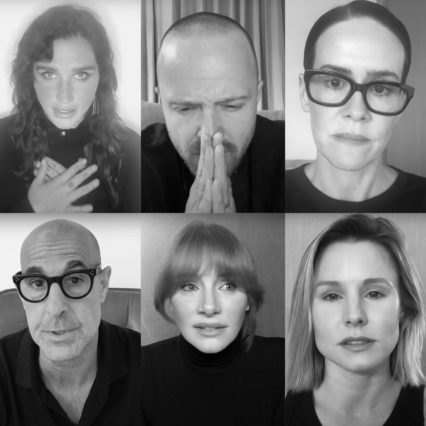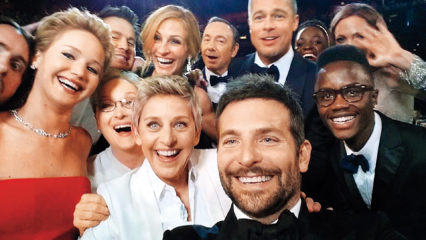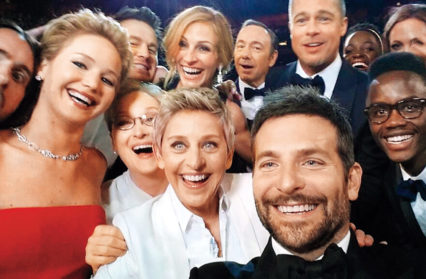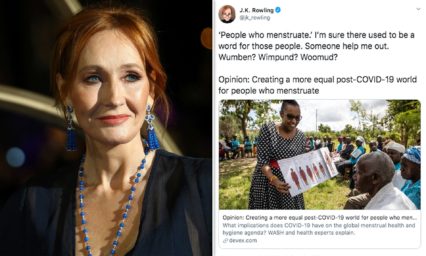Caragh Medlicott explores the delusion and destructive nature of celebrity privilege which has been drawn ever more into the spotlight at this time of pandemic and protests.
It is a truth universally acknowledged, that a celebrity who builds a reputation around being ‘nice’, must inevitably face public backlash. Ellen DeGeneres is a shining example of this, the star has fallen out of public favour more than a few times in the last year. Tabloid rumours have persisted that the cutesy talk show host is anything but off-screen. Throw in the George W. Bush hangout fiasco, her estimated net worth of $330 million, and it’s hardly surprising that her jokey lockdown video (where she compares being stuck in her multimillion-dollar mansion to ‘being in jail’) went down like a heaped spoon of cod liver oil.
Celebrities have always known how to annoy us, but the ‘crying-in-my-mansion’ schtick alongside the bizarre star-encrusted cover of John Lennon’s ‘Imagine’ (released while the rest of us were scrambling around in our cupboards checking the dates of long-forgotten tinned goods) sent things into hyperdrive.
Such public meltdowns have led to celeb-on-celeb pile-ons, with Minnie Driver, Ricky Gervais, and (of course) Piers Morgan ragging on the other tone-deaf stars making a fuss. We weren’t long into quarantine before the newly-coined ‘covidiot’ was brandished in the faces of celebrities and lockdown-breakers alike. The backlash faced by celebs hasn’t been solely down to their own stupidity, either, but also the general public’s lowered tolerance for such antics. Stars! It turns out they’re not just like us (a fact that is only emphasised when confined to your one-bedroom flat).
For the famous elite, social media is nothing short of a ticking time bomb. Newcomers to the world of glitz and glamour often find that their every tweet, Facebook status, and – occasionally – MySpace post as a former muggle can be dredged from the depths to jumpstart a trending #IsCancelledParty. Not to mention the rogue celebs who have historically sent their publicists running for the LA hills with uncensored Twitter blunders; in lockdown these filter-free moments have increased tenfold.
‘Clueless’ has always been a phrase favoured by the gossip columns, but this light-touch word disguises a more sinister reality: ignorance with a platform. When the taped murder of George Floyd sparked global protests, celebrity displays of privilege quickly veered into a more troubling territory.
Privilege may not be about deliberate malice, but it does inflict pain; a toddler can stamp on ants without full comprehension of their actions, but it does little to make the ants feel any better. Privilege is Marie Antoinette declaring ‘let them eat cake’ upon hearing that the starving masses have no bread, and it is also disgruntled white people bleating ‘all lives matter’ in the face of systemic racism. It’s about assumption and a misalignment of understanding. It can be dangerous at the best of times, but when wielded by the influential, the effect is amplified.
In physics, every action has an equal and opposite reaction – but if your follower count is in the millions, the reverberations will last far longer. There is no use in downplaying the influence of celebrities. No matter how tacky you think a star is, it doesn’t stop another member of the general public tattooing that person’s face across their hairy back. Celebs aren’t typically the architects of power – though they’re certainly beneficiaries of it– instead, their power lies in the dubious and murky realm of ‘role models’.
The thing about role models in the internet age is that they are both disproportionately showered with praise and savagely torn to pieces. The last few weeks have let rip to more than a few such moments. Seth Rogan’s bristly responses telling ‘all lives matter’ commenters to eff off on Instagram were quickly met with applause and circulated across social media platforms. His replies were pretty funny, but dismantler of the system, he is not.
Celebrities are not a single blob of power made up of money and green kale smoothies. Rogan, as a straight white guy, packs a lot more privilege than famous people with more marginalised identities; naturally that informs any response to his actions, positive or not. On any given day, he is sure to receive significantly less abuse than a black, female artist such as Lizzo (whose reply section is always polluted with trolls). This isn’t about berating Rogan – his responses were funny – but it’s worth noting privilege in action, even in regards to praise.

It can be hard to tell from a lowly peasant perspective what actually penetrates the celebrity bubble, because apparently the universal mocking of the ‘Imagine’ cover ricocheted right off. By early June, another all-star video had appeared dubbed ‘I take responsibility PSA’. The clip features a random ensemble cast of white celebs telling their front-screen cameras that they ‘take responsibility’ for their part in systemic racism. The video was widely ridiculed and even inspired a parody from the cast of Netflix’s ‘Dear White People’. The irony of trying to uproot systemic racism with self-oriented words, rather than action, is surely obvious to anyone paying an ounce of attention. To quote a tweet from Josh Spiegel: ‘Talking earnestly for 30 seconds on a cell phone video is not taking responsibility.’
Of course, now we must inevitably come to the founder of the most acrimonious and heated of the recent celebrity-inspired debates: J.K. Rowling. In case you have been living under several heavy and unmovable rocks, Rowling decided to take a break from praising children’s drawings to tweet a period poverty article in which she took issue with the phrase ‘people who menstruate’. This tweet was a crack in the dam on the topic of trans issues for which Rowling’s views have been speculatively contentious for a while.
Alas, soon after, Rowling released a lengthy personal essay on the matter. She documents the reason for her out-of-the-blue tweets and her concerns around trans activism, as well as revealing that she is a survivor of domestic abuse and sexual assault. It’s not an impulsive piece, and in the instance of her experiences as a survivor she deserves nothing but sympathy and respect. Unfortunately, in regard to the rest of her essay, her writing is pedantic at best and dangerous at worst. It makes some moves to explain why she felt that now – a time of pandemic and protest – was the moment to speak out on the issue. Yet it covers no ground in justifying her dehumanising views.
What is perhaps most troubling about Rowling’s essay is the doling out of inaccurate and flawed statistics coupled with some pretty hefty scaremongering tactics in relation to the Scottish government’s gender recognition plans. Rowling lists a great many worries about what would happen if such a law were to pass, but flouts any mention of Ireland where the Gender Recognition Act has been in place since 2015 (not to mention other countries like Norway, Iceland, Portugal, Belgium, Argentina and Malta where similar laws are also in place). Had any of these countries provided Rowling with ammunition in supporting her pressing concerns, she undoubtedly would have included them – but they don’t, so she couldn’t.
I won’t spend any time fact checking the entirety of Rowling’s piece, because many have already done that with far more efficiency and detail. What this instance demonstrates is the power celebrities have to sway public conversation. Undoubtedly Rowling’s essay will have influenced many, including some of her younger fans. She also (rightly) condemns abuse on and off Twitter, but it is hard to believe that her words will not inspire further harassment for the trans community, both online and out in the world.
 Even prior to the pandemic it seemed the public’s tolerance for celebrity hypocrisy was starting to wane. If you cast your mind back to that far away and forgotten land previously known as January 2020, you might recall Ricky Gervais’s viral Golden Globes speech. Quality of jokes aside, there’s no doubt its virality was down to a certain schadenfreude enjoyment. It was akin to watching the popular kids get taught a lesson in a teen film, and it certainly circulated for different reasons to the infamous Ellen Oscar selfie from six years before.
Even prior to the pandemic it seemed the public’s tolerance for celebrity hypocrisy was starting to wane. If you cast your mind back to that far away and forgotten land previously known as January 2020, you might recall Ricky Gervais’s viral Golden Globes speech. Quality of jokes aside, there’s no doubt its virality was down to a certain schadenfreude enjoyment. It was akin to watching the popular kids get taught a lesson in a teen film, and it certainly circulated for different reasons to the infamous Ellen Oscar selfie from six years before.
It is easy to focus on the more insidious ways celebrity privilege can change things for the worse, but Manchester United’s Marcus Rashford has given reason for a happier end to this piece. The 22-year-old footballer led a successful online campaign to change the UK government’s stance on extending free school meals throughout the summer holidays. In an online environment so frequently lacking in nuance and positivity, Rashford has provided a perfect example of the way celebrity can be harnessed for remarkable and exquisite good – let’s hope he inspires others to do the same.
Caragh Medlicott is a columnist and associate editor of Wales Arts Review.




 Enjoyed this article? Support our writers directly by buying them a coffee and clicking this link.
Enjoyed this article? Support our writers directly by buying them a coffee and clicking this link.







